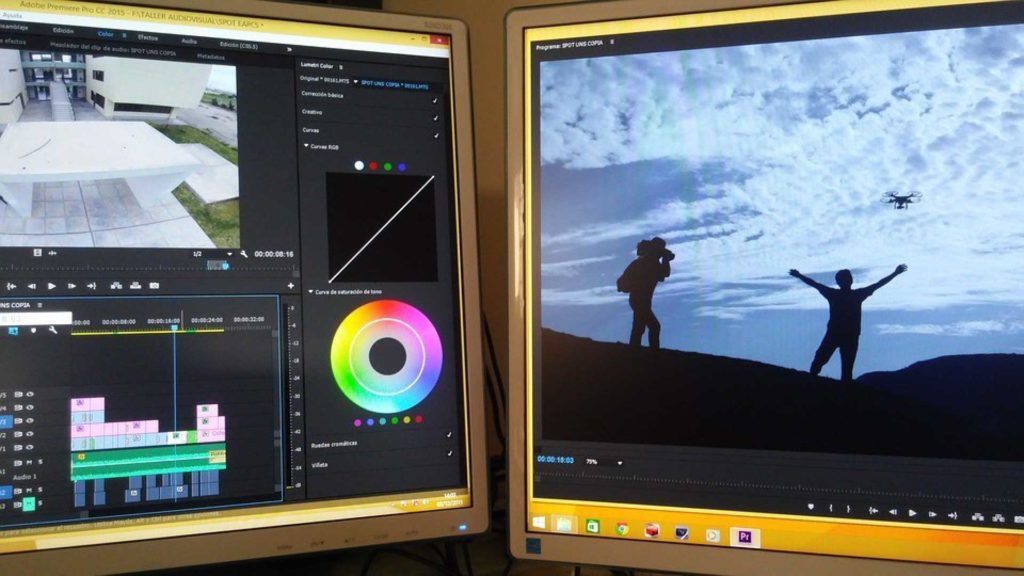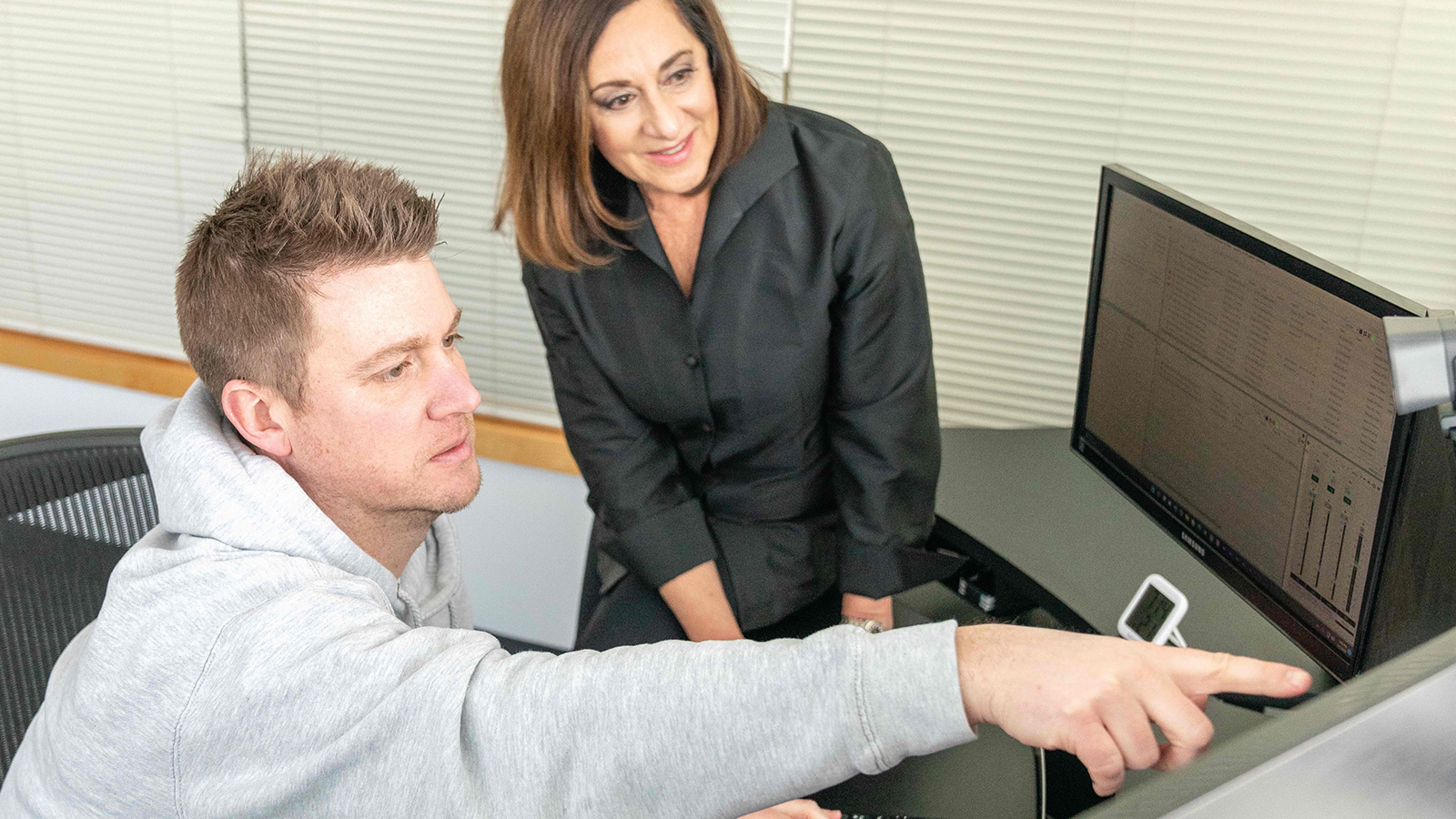
Video Production Career Guide
Whether you’re a student deciding on the direction of your career, or someone looking to make a career change, the world of video production offers a lot of exciting opportunities. Like any industry, there is much to learn and a lot of insider information that is valuable to know before choosing a career path. We surveyed a number of experienced video production professionals to get their take on what to expect from a job in video production and some advice on succeeding in the business.
1. If you are giving advice to someone looking to get a job in video or media production, what video producer skills do you feel will be most valuable in the industry and most important in helping them succeed?
The individual who has a good blend of technical and people skills is most valuable. Production is a complicated process because every project is unique. Therefore, you must have a good understanding of all of the elements and then be able to communicate with others on the production team and clients.
-Cynthia Kay
I believe the best skills for video production aren’t camera or editing skills – it’s business skills. You need to understand negotiating while representing yourself and your company professionally. If you don’t understand pricing you’ll price yourself too low and it’s hard to get out of the hobbyist/student profile you’ve created So learn as much about business as you can and it’ll improve the work you create.
-Brian Sly
I’d emphasize problem solving skills–the ability to analyze unexpected
challenges and come up with viable solutions. Recommended reading: SMARTER,
FASTER, BETTER.
-Murray Suid
People skills. Technical skills can be taught. In today’s thoroughly connected digital environment, access to learning the necessary technology is limitless. However, the ability to interact with others positively for untold hours toward a common goal requires an ability to balance professionalism with social skills. Too many arrive in our offices holding a certificate stating their impeccable abilities at their craft, yet lack the patience and humility to embrace their own opportunity to learn and become part of a bigger team. Teach me are two of the best words a prospect can say if they don’t know the answer to a question.
-Sean P. Thoennes
They must have good people skills, and be flexible. Most of this job is making good connections with people and being able to adjust on the fly. Every video, and video shoot is unique and you never know where it will take you.
-Randall Scott
2. Does your current company utilize interns? If so, what sort of tasks do video or media production interns handle for your organization?
Over the years we have offered internships at various times. In a number of cases, the interns became full-time employees right out of college. We do not look at internships as “free help” so we provide compensation. I have found that students who are nearing graduation are a much better fit for us than younger students. Once on site, we get them up to speed on our business, teach them processes, guide and provide meaningful projects. They are here to learn about each of the areas, as well as work. Our video production interns work under the supervision of staff in the field, both shooting and assisting. They also have the opportunity to work as editors and in the graphics area. Our goal is to have them work on projects start to finish so they build a portfolio of work to assist them in their job search. I think that many businesses can benefit from having the right intern. The best interns bring a fresh perspective and new ideas to your company. You provide them critical real world experience. Done right- everyone wins.
-Cynthia Kay
We involve our interns in all aspects of the business–everything from
revising scripts to testing equipment.
-Murray Suid
Yes. The tasks range from sweeping floors to writing scripts to shopping for craft services. In this way, they learn the full requirements for operating a production business.
-Sean P. Thoennes
Yes we do accept interns. At my station, interns will do a lot of organizational work like archiving, and also a lot of editing.
-Randall Scott
3. If there is such a thing as a “typical media production career path” in this business, what does it look like?
This field is exciting because there is no typical career path. However, there are areas of specialty. There are creative directors, scriptwriters and producers, field production teams and post-production positions. One might move from assisting in one of these areas up to a supervisory -position. Additionally, there is opportunity for those who want to become business owners and lead their own team.
-Cynthia Kay
After graduating from Columbia College, we were expected to move to Los Angeles and join the film industry since we were taught more film than video. I know many people who did that – and some of them are doing quite well. But for video, if you’re not in TV broadcasting, it’s really up to you to form your own video business or find a company that has a need. It can be difficult to locate those jobs even though we’re living in the world where videos control social media.
-Brian Sly
Most of the people I know in the business started out by shooting their own
videos–learning by experimentation.
-Murray Suid
Typical is pushing it, but career paths do exist. Once on a particular trajectory it is hard to change without taking a step backward first. This is because the industry works on an apprenticeship model whereby the inexperienced assists the experienced then gradually takes on more responsibilities until they are trusted to operate independently.
-Sean P. Thoennes
There are a thousand ways to break into this business, and everybody will have a different story, but the most common way is with internships. They are great for proving your worth and making contacts.
-Randall Scott
4. In an entry level position, what types of tasks and responsibilities should someone expect to take on?
In an entry level position, employees are usually working as a part of a team assisting more experienced staff. They may be involved in pre-production planning and scheduling, possible scripting, lighting, teleprompter, camera, logging video and rough cut editing. Generally direct client contact is somewhat limited until the employee becomes fully on-boarded.
-Cynthia Kay
The beginner should be prepared to do anything and everything. If a task
requires new skills, the person should be willing to master them by asking
for help, viewing tutorials, whatever it takes.
-Murray Suid
Anything that is asked of them pertaining to the production, so long as it operates within the bounds of safety and comfort. It is okay to say you don’t like something and ask not to be tasked with that job so long as you show the willingness to try, or offer an alternative way you can help. For example, some cannot lift a heavy camera rig, or are not licensed to drive a box truck. While on the one hand, it does limit their use when the call sheet goes out, it also helps focus their reputation as a specialist in something else.
-Sean P. Thoennes
Expect to start out at the bottom and work your way up. The bigger the company you start with, usually the smaller the position will be. But sometimes in smaller companies you will be thrown into the mix faster.
-Randall Scott
5. What kinds of varying positions / jobs / experiences should a new hire seek out to become well-rounded and make them marketable in the industry?
It is critically important to get experience in a variety of different areas and settings to be marketable. That means working in news outlets, production companies and corporate media departments. That is why we suggest doing several internships over the course of a student’s college career. It is also important not to limit yourself to one job because most companies require people to be cross-trained in a number of different positions so they can step in where needed. This keeps the workforce flexible to so that it can deal with the inevitable spikes of business.
-Cynthia Kay
I’m a huge fan of hands-on experience. You might be tempted to join a large production as a production assistant, but chances are you’ll be standing at the end of a street directing traffic and won’t learn anything of importance. So find the small productions that need a lot of help. One day you’ll be helping the art department. The next day you’ll be helping camera or lighting. They’ll put you where you’re needed and that’s when you learn the most.
-Brian Sly
They should know how to read and write scripts, and know how to master new
equipment.
-Murray Suid
Do everything as early as possible until you find something you are passionate about, then focus. Make sure you have an end goal & choose accordingly. For example, don’t stay in the offices if you want to eventually become a director on location. And don’t stay on location without spending some time in post for the same reason. Most importantly, know good storytelling no matter what role you play.
-Sean P. Thoennes
A new hire should immerse themselves as much as possible in the business, even if it’s not the end goal. A good video person can write, shoot, edit, produce, run audio and engage in sales as well. Getting your foot in the door is the most important step, and having as many skills as possible only helps.
-Randall Scott
Any position can be a good place to start, especially in an organization that has many moving parts. Being able to observe the roles of others will give you a good idea of where you fit into the process as well as help you hone your future career path. In order to be marketable, you need to develop a solid set of varied tools and techniques, because every project is different. A new hire should also be familiar with a variety of different systems and software, so if one idea doesn’t work, you can easily pivot to another solution. Not every piece should look the same, have the same flow, or use the same techniques.
-Jason Woods
6. What differences are there between working for a large (national or international) production company compared to a smaller, regional one?
Larger firms tend to have much narrower job descriptions and employees may be assigned to a particular group of clients or type of production (internal training, commercials, etc.). The production teams also tend to be larger. In a smaller firm, employees have much more diversity in their work. They might be working on an internal communication one day and shooting for a high-end trade show project the next day. Additionally, smaller firms tend to run leaner on location – two to three people as opposed to seven to ten.
-Cynthia Kay
Huge differences exist between large and small production companies. Steady work is key, and your fortunes rise and fall with smaller companies that can come and go overnight. Large companies tend to pay in a timely fashion, though among both small and large, some have been known to keep their money in interest-bearing accounts for as long as legally allowed before paying. On the other hand, loyalty is valued greatly in a smaller company and when run by reputable individuals can be an excellent lifelong experience much like a family. There tends to be more forgiveness in a family. In a large company, you’re only as good as your last job and can find yourself never getting called back if you are perceived negatively after one bad experience. You are always networking for the next job.
-Sean P. Thoennes
In smaller companies you may be expected to wear more hats, and work in smaller or even one man crews.
-Randall Scott
7. If you had only one piece of advice for someone looking to get into a career in video or media production, what would it be?
This is a piece of advice I would offer anyone going into the job market- love what you do. We spend a great deal of time working… and have a lot of fun but you must be truly engaged in the profession to achieve any level of success.
-Cynthia Kay
My biggest piece of advice is to never stop learning. That involves learning to listen more intently to what clients want so you can help them with creative videos. That involves reading books or listening to audiobooks about both business and video. When you stop learning and fall into the templated designs, you’ll fall behind. The more you learn about the industry the quicker you can turn projects and make more money.
-Brian Sly
Make sure you love making movies. It’s hard work. There are often
disappointments. You need to want it emotionally as well as intellectually.
-Murray Suid
Be passionate and eager to learn. The perception of this industry is glamorous and it is not. What seems to be most common in all of us in this industry is a desire to envision, create, and tell stories, then move on to the next project. Know yourself and your ability to sacrifice valuable time and potential income elsewhere to practice your craft, then you will be successful.
-Sean P. Thoennes
Make as many connections as possible!
-Randall Scott
Find a way to be creative every day. Sometimes it will be job-related, sometimes it won’t. When an idea hits you, jot it down, sketch it out, and keep it around. You never know when that quick thought will be the solution you’re looking for.
-Jason Woods
8. In an industry with a lot of fast moving technology, how do you stay up on the trends to make sure your knowledge and skills stay sharp?
We have a number of different ways to stay sharp. To begin, we subscribe to an online learning system called lynda.com and individuals take courses of interest to expand their skills. We attend industry shows, connect with colleagues across the country and also ask the team to share new ideas every week in a thing we call “design trends.”
-Cynthia Kay
Hang out with people who are lifelong learners. Also, subscribe to relevant journals.
-Murray Suid
Be the innovator. Trends are very extemporaneous and most times driven by suppliers looking to get you to buy the latest. If you focus on the art of storytelling and always trying to deliver your story in a unique way, you can be confident of differentiating yourself from others. Knowing every new tool is impossible. Thankfully, story is ingrained in our DNA in a way that makes the tools invisible. Practice making the tools you know ever more invisible and you will add an edge to an already sharp knife.
-Sean P. Thoennes
Watch what others are doing. Great new ideas often spring from what others have already created.
-Randall Scott
Browse YouTube, browse Vimeo – there are endless work samples, ideas, and inspirations on the Internet. Sit down and try something out if you have a few minutes free. Try to replicate something you’ve seen someone else do and then put a twist on it. Use a technique you’ve used before, but on a different type of piece. Never be afraid to delete everything and start over, as long as you don’t go down that same path again.
-Jason Woods
9. Based on your experience, what are the most surprising or unexpected elements about working in media and video production?
Based on some of the projects I’ve been chosen for over the years, learn to expect the unexpected! Things change quickly and you must adapt.
-Brian Sly
The most surprising element for me was when I realized I had achieved my initial career goals years ago. For so long, I believed being hired into the position I sought would mean making it, when in reality, I had to create the position for myself and subsequently others. Don’t wait for someone to hire you. Just do it.
-Sean P. Thoennes
The amount of knowledge you will gain. You have to know a little bit about everything, one day you may be making a commercial for medical equipment, the next day you are shooting video of a Presidential visit.
-Randall Scott
It is interesting how little clients understand about the process of video production. We spend a lot of time educating them about the process and what to expect. It is difficult for many of them to visualize the end result because it is intangible.
-Cynthia Kay
10. What do you find to be the most rewarding aspect of your career?
What I love about the business is that it is more than just production. We collaborate with our customers to get to know their businesses, understand their challenges and become extensions of their teams. It is rewarding when we create presentations that engage and interest the audience. Sometimes we think for our clients. We help them stretch and see new ways to produce and leverage quality communications, but one thing is certain. We are always thinking about our clients and they become good friends.
-Cynthia Kay
The most rewarding part of my video career is knowing that I’m helping other people share what they love to do. I used to perform the day-in and day-out production tasks as if it were a 9 to 5 job and I wasn’t happy. I needed freedom and to know I was making a difference. So I moved my business’ focus to strategy first and now I know in my heart that when I sit down with clients I can truly help them. Their success is my success.
-Brian Sly
Finishing productions that have value–that I like to look at myself.
-Murray Suid
Two things have been most rewarding: Seeing the field of non-linear editing that I helped pioneer at Disney grow in such a way that I was able to advance the careers of others beyond my own, and creating slices of life that are meaningful to at least one person somewhere.
-Sean P. Thoennes
Getting access to lots of exciting things.
-Randall Scott
I love the problem-solving aspect of our business. It’s always great fun for me to figure out a solution that makes it appear that there wasn’t a problem in the first place.
-Jason Woods
About Our Contributors

Brian Sly
My name is Brian Sly and I’m the Founder of Emblem Media Inc. I mentor high school business classes on the aspects of video as a profession, as well as helping small and medium sized businesses with video strategy. I’ve done every job in the video space which has helped me teach others to look at the larger picture. My company website is https://emblemmediainc.com.

Murray Suid
I’m the cofounder of MobileMovieMaking.com, an online magazine about using smartphones, tablets, drones, and GoPros to shoot video in all genres.My training is in screenwriting (MFA from UCLA) but early on I co-directed several short 16mm movies including one that earned the special jury prize at the Marburg Film Festival. I’ve had one feature script produced. And now, I’m mastering the art and technology of shooting documentaries using mobile devices.

Dr. Sean P. Thoennes
Dr. Thoennes researches new Media & Technologies through a lens of personal and brand narratives. The focus is on agency, group dynamics and self-directed evolution, which gave rise to the multi-disciplinary field of Neo-Anthropogenic Psychology to reveal the impact exponential advances in technologies have on the human narrative. Evolved over time to make sense of the world around us, he brings decades-long experience with storytelling via electronic media in cost-conscious corporate & broadcast environments, as well as emerging immersive media such as Augmented Reality (AR), Virtual Reality (VR), and Mixed Reality (MR). Within Disney, he built a new business model that pioneered desktop video editing & using the Internet for a Webcast series that decreased costs, while increasing access companywide. Dr. Thoennes’ case study findings published in 2015 on the 2012 campaign Barack Obama reddit IAmA support a crossover from the physical world to the online environment of broadly accepted group process theories. Implications suggest human-computer interactions are real and separate from physical interactions, which lends validity to the need for neo-anthropogenic psychology.
- Editor for Disney Broadcast Productions
- Adjunct Faculty for Fielding Graduate University Media Psychology Masters Program
- President/Owner, mediaX, LLC

Randy Scott
Randy Scott is a station manager and broadcast communication instructor for DTV at Davison Community Schools. Scott graduated from Grand Valley State University with a BS in Broadcasting and spent 15 years working in radio, and TV news in Flint, Detroit and Grand Rapids, Michigan.

Cynthia Kay
Cynthia Kay is the Owner/President of Cynthia Kay and Company. CK & CO is a full-service media production and corporate communications consulting company that serves businesses from the Global Fortune 100 and 500 to national non-profits. The company has won numerous Telly Awards and has been named one of the 100 Best and Brightest Companies in West Michigan twice.

Jason Woods
Jason Woods is a Producer/Editor at Cynthia Kay and Company.
At CK and CO, we're not just video production experts. We're a team of passionate thinkers, innovators, visualizers, and creators. Our goal is to help you educate and engage your clients by expertly telling your brand's story through compelling digital content.



